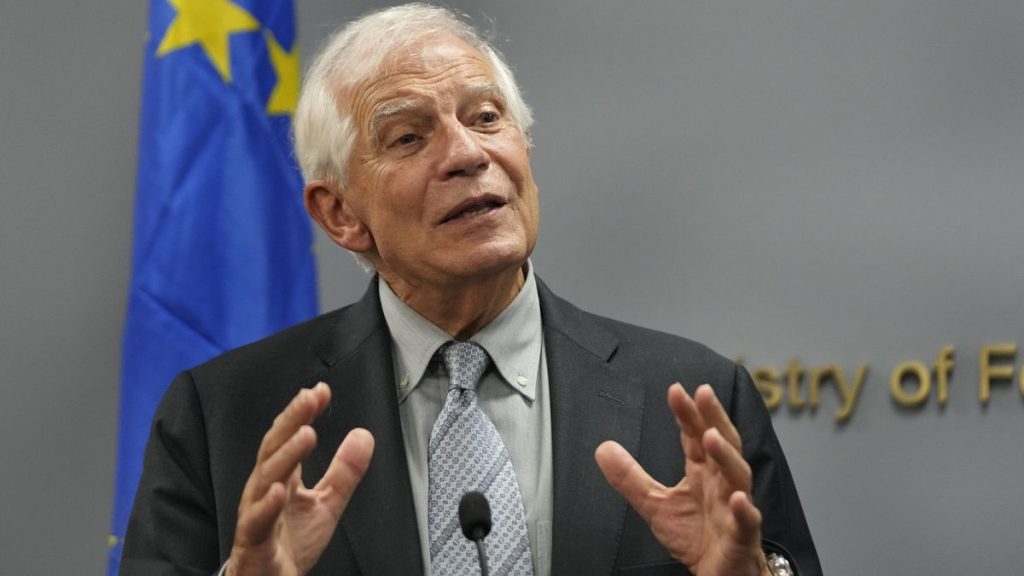The European Union’s foreign ministers have called for an immediate ceasefire between Hezbollah and Israel as tensions escalate with Israel launching small raids into Lebanon ahead of a potential ground invasion. The EU is concerned about the risk of further escalation in the region and urges restraint from all parties. The EU’s caution follows Israeli warnings of the next phase of the conflict and strikes on Hezbollah leaders and infrastructure in civilian areas. The EU emphasizes the need for diplomacy to be prioritized to avoid further military intervention and aggravation of the situation.
French Foreign Minister Jean-Noël Barrot urged Israel to refrain from any ground incursion and stop firing, while also calling on Hezbollah to do the same. The ministerial meeting between EU foreign ministers took place over video call and was informal, with no decisions made regarding the bloc’s response to the conflict. The EU’s diplomatic clout in the region has been weakened by deep divisions between member states’ positions on the crisis in the Middle East. The EU’s top diplomat, Josep Borrell, stressed the importance of ensuring the sovereignty of both Israel and Lebanon and preventing any further military intervention.
Israel has ramped up its offensive against Hezbollah, targeting key leaders and infrastructure in Lebanon. Strikes on Beirut and other areas have led to a mass exodus of Lebanese citizens, with as many as one million people fleeing their homes. The European Commission has released €10 million in humanitarian aid to Lebanon to assist those affected by the conflict. The EU continues to support the fragile Lebanese government and is committed to providing critical aid to those in need. The deepening economic crisis and the presence of Hezbollah in Lebanon have made the country vulnerable to instability.
The EU has expressed its commitment to supporting the Lebanese authorities and ensuring the country’s stability amidst the ongoing conflict. The EU has also highlighted the importance of preserving Lebanon’s state institutions, which are at risk of collapsing. Efforts to deliver medical aid and equipment to those affected by the conflict are ongoing, with the EU’s civil protection mechanism being utilized to provide assistance. The EU had previously committed to deeper engagement with Lebanon in April, recognizing the country’s vulnerability to the instability in the region. The election of a Lebanese president is seen as critical to supporting stability in the country.
Israeli Defence Minister Yoav Gallant has indicated that the next phase of Israel’s war against Hezbollah is imminent, leading to concerns about a potential ground invasion. Prime Minister Benjamin Netanyahu is expected to convene his security cabinet to discuss further action. The international community is working to prevent a further escalation of the conflict and urging all parties to show restraint. The EU’s call for an immediate ceasefire reflects the growing concern over the situation in the region and the need for diplomatic solutions to be pursued. The EU’s commitment to supporting Lebanon and providing critical aid underscores the importance of addressing the humanitarian impact of the conflict.













